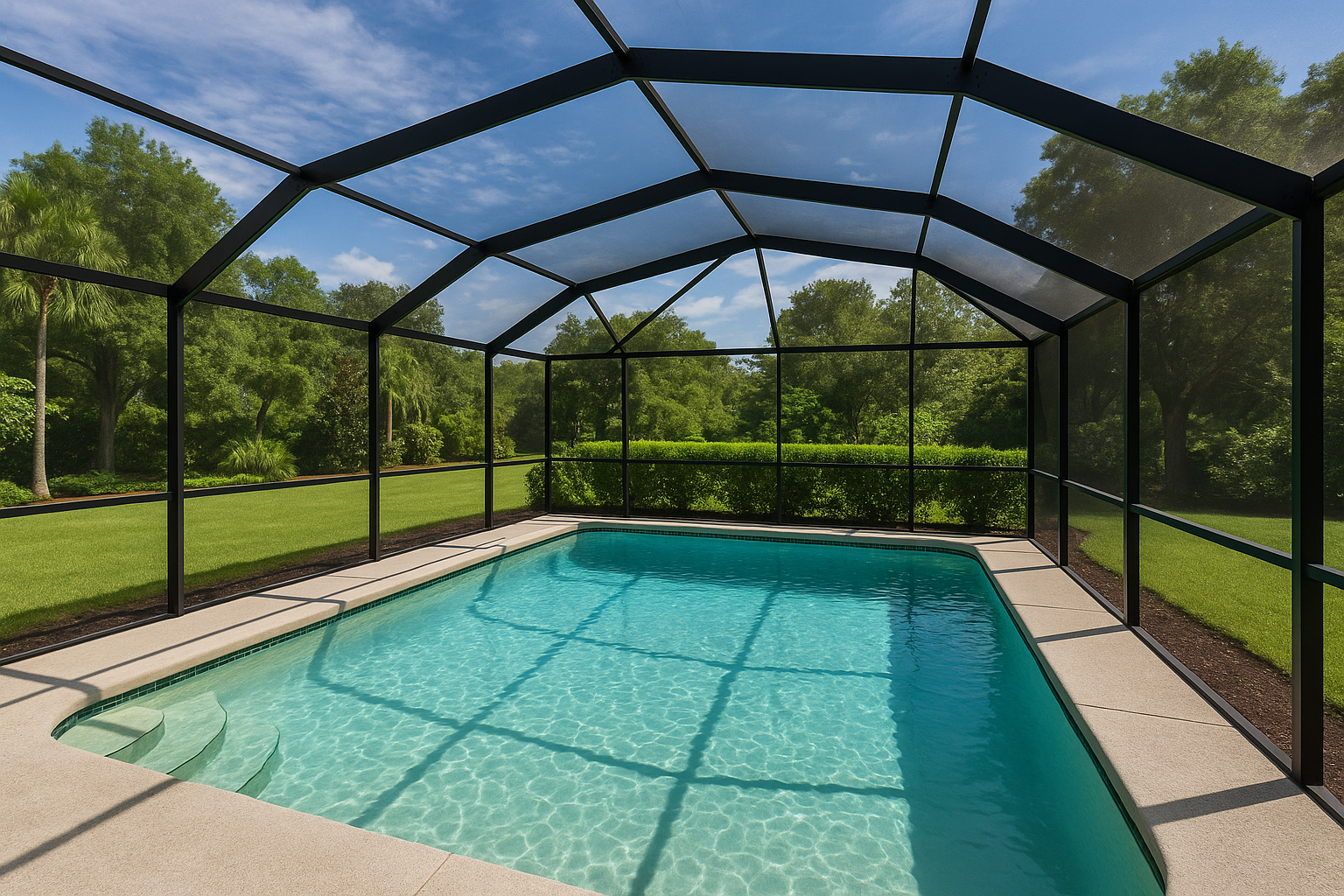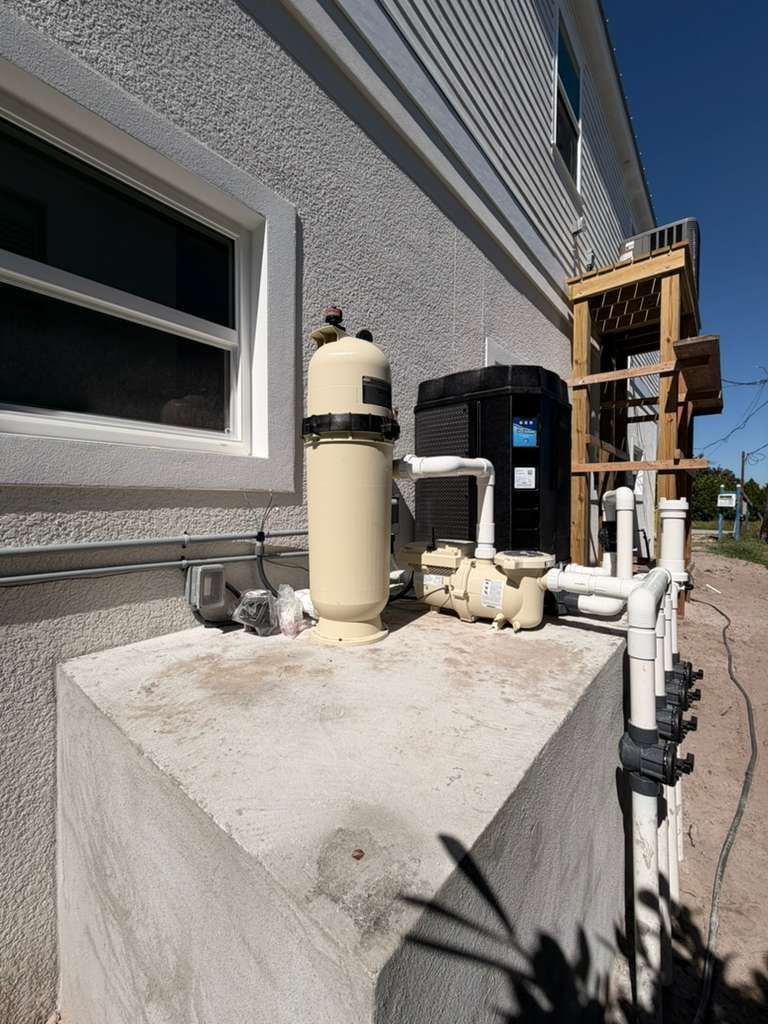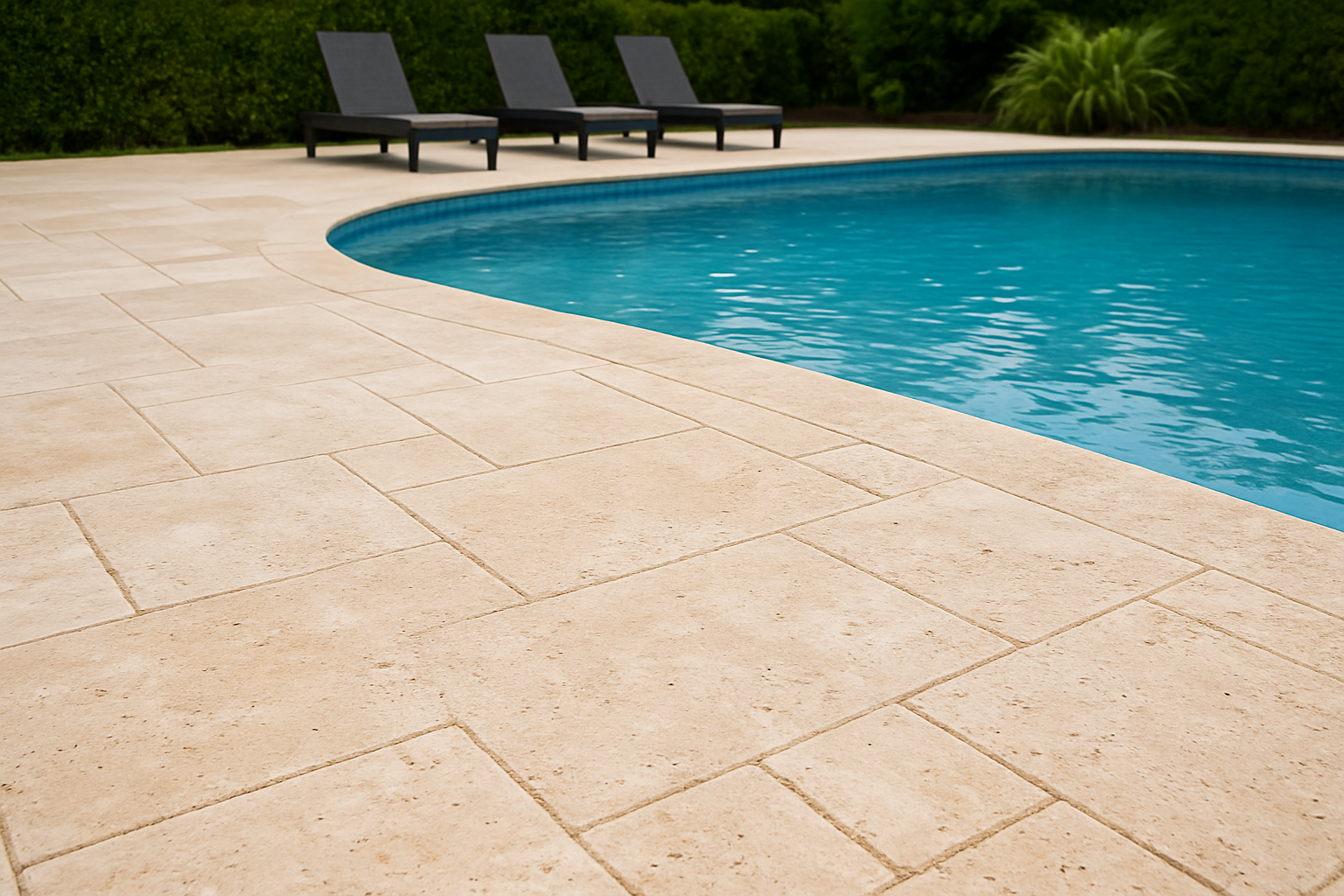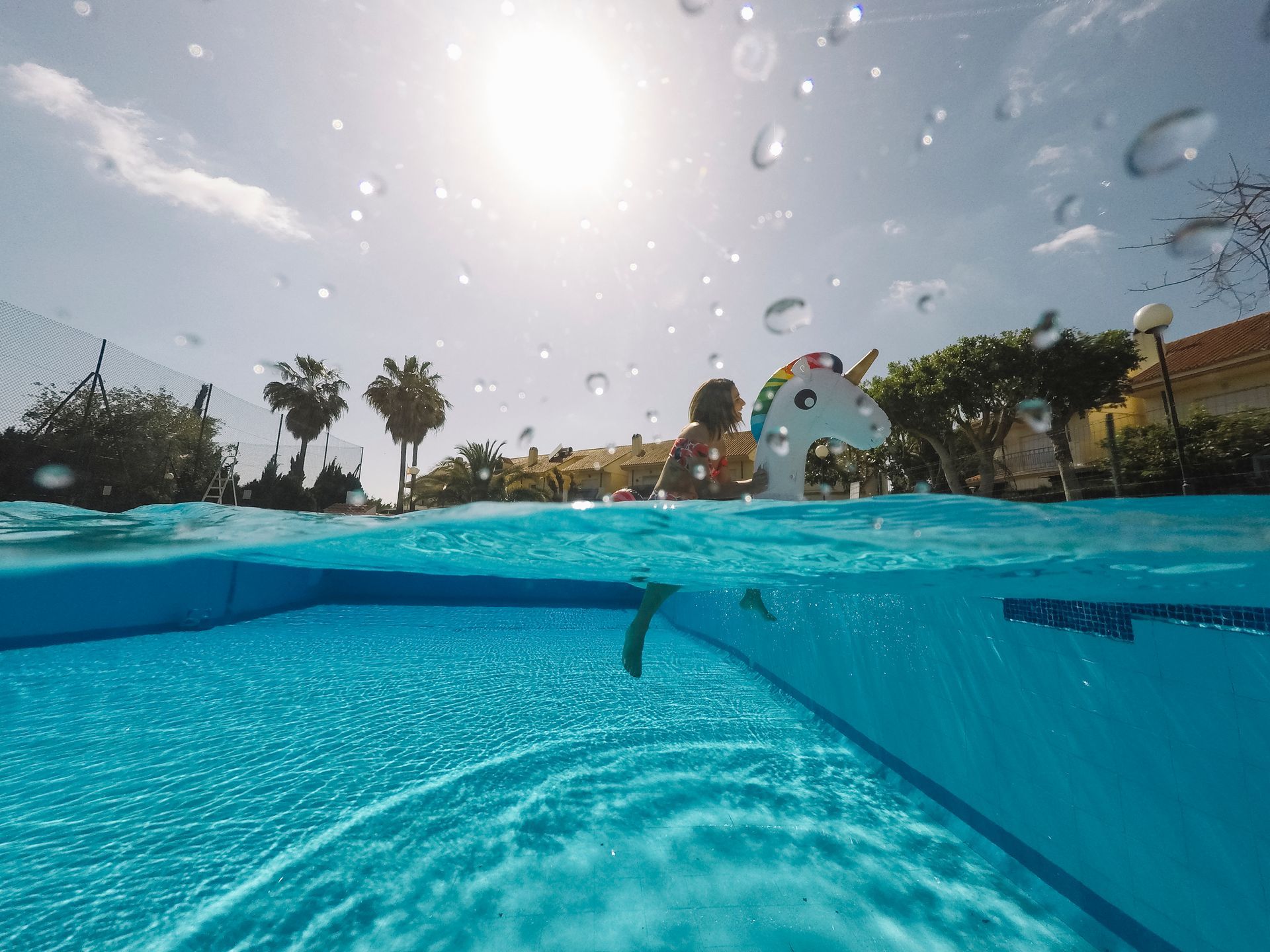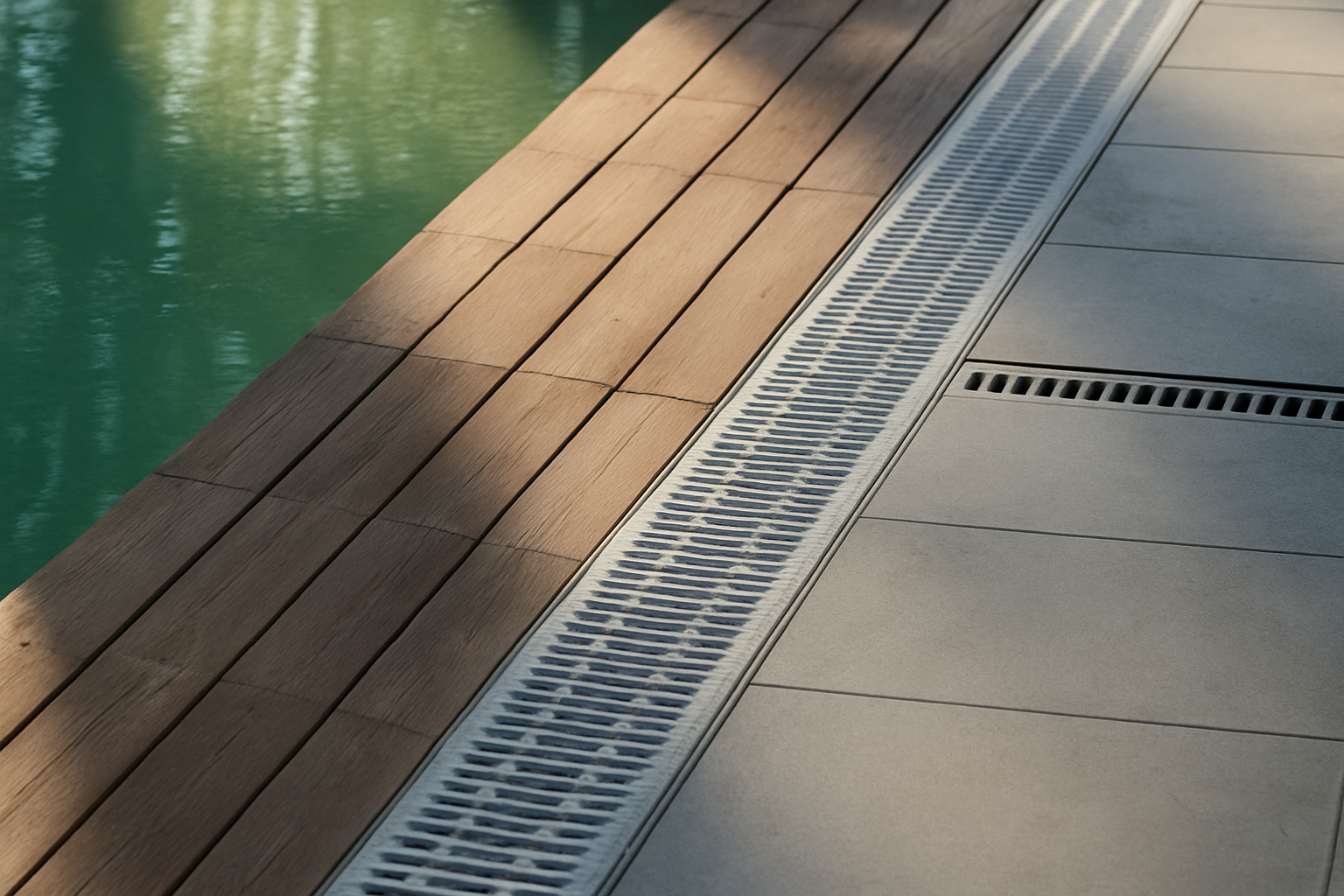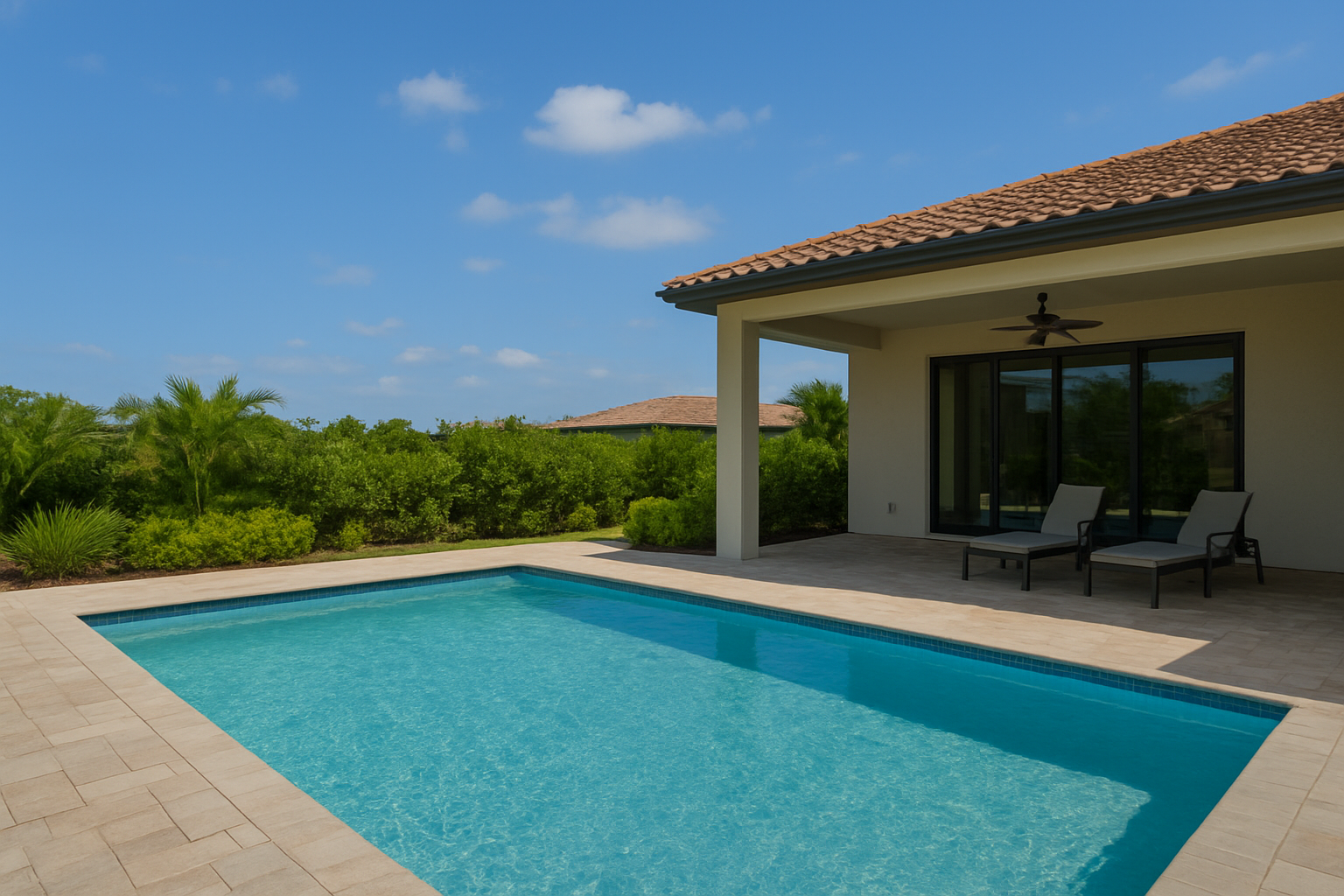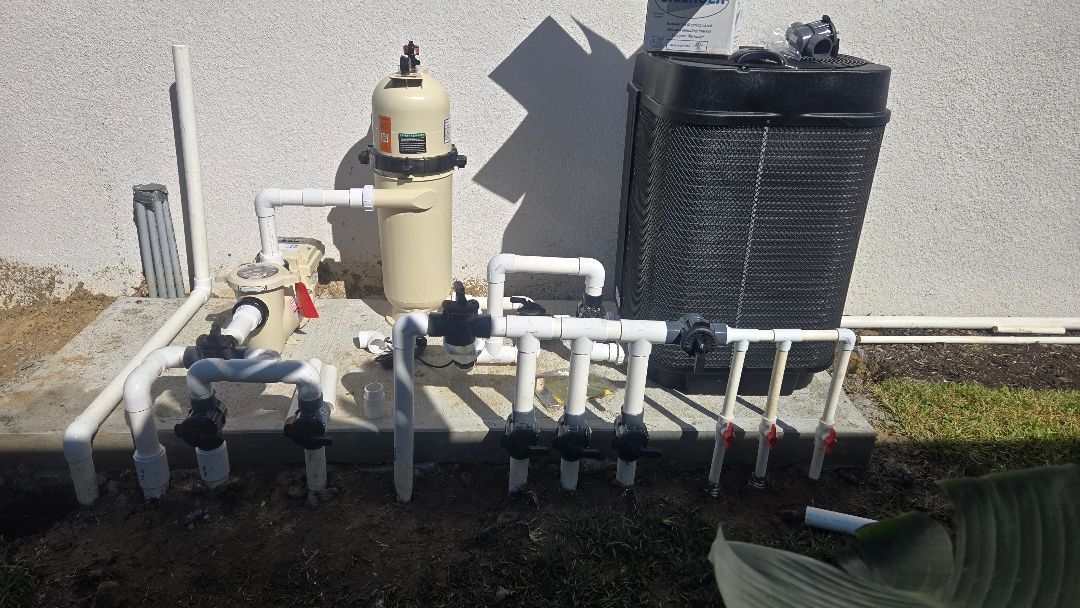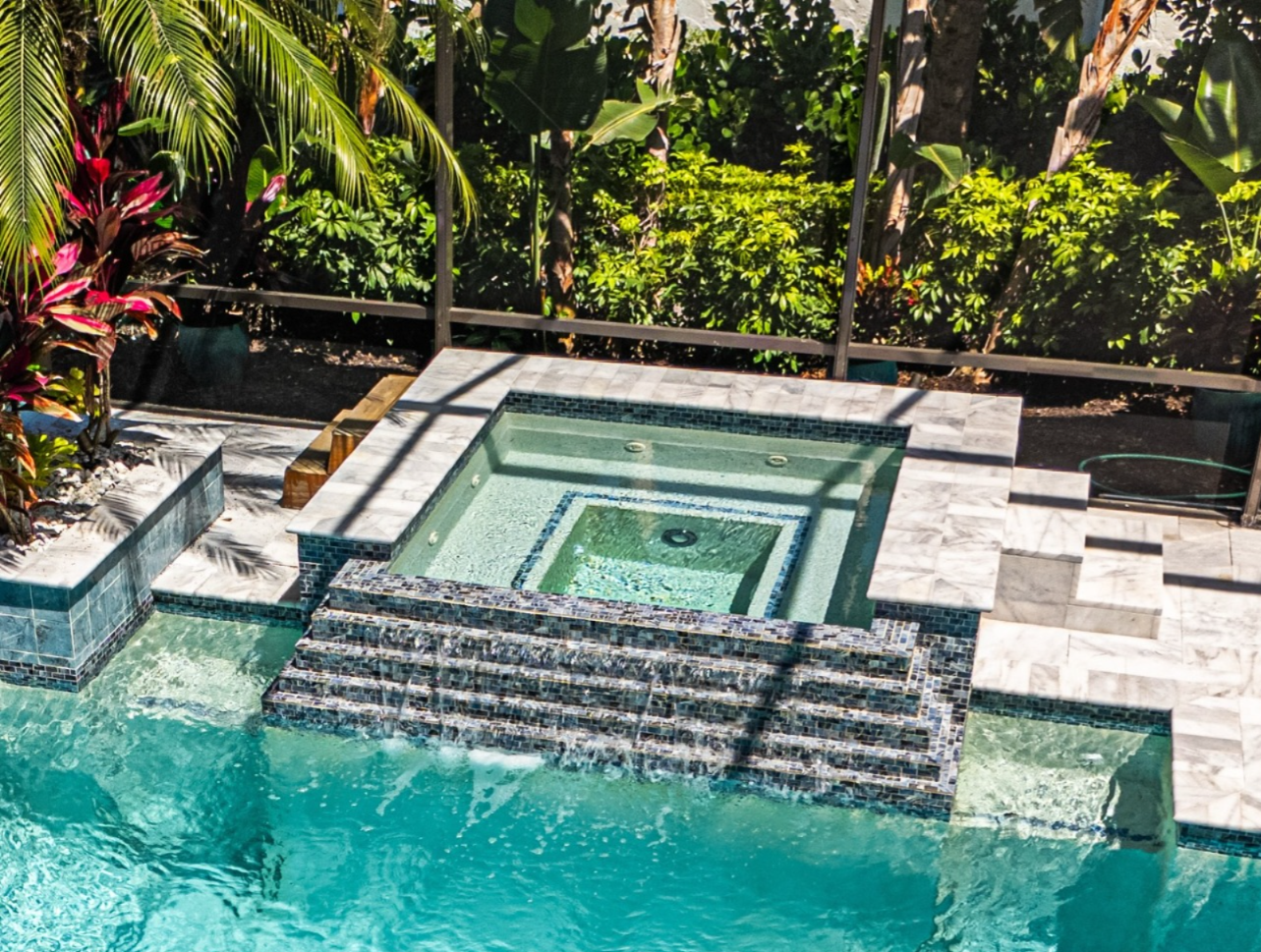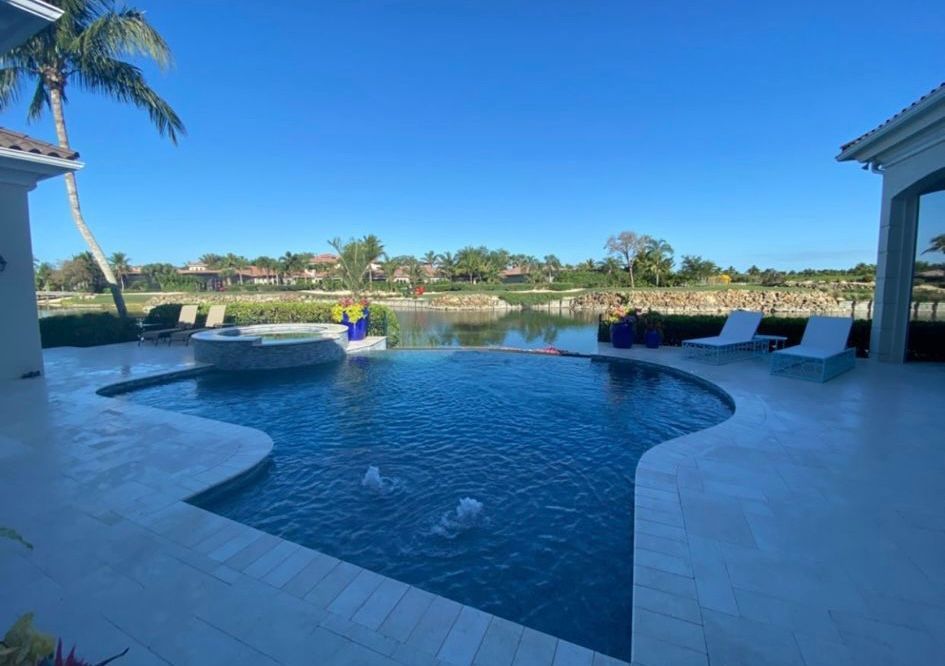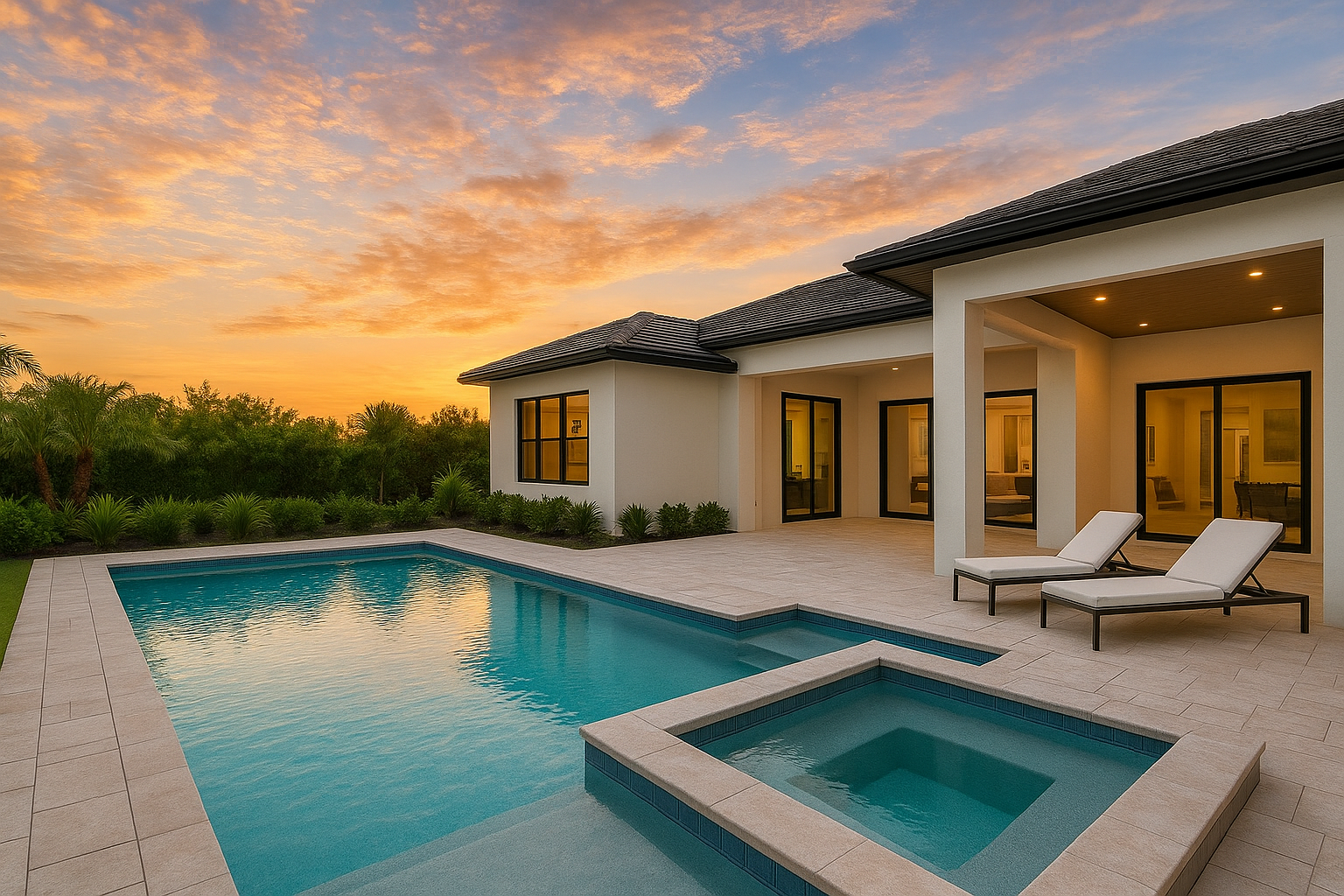How to Extend the Life of Your Pool Finish
Your pool’s finish is more than just a pretty surface — it’s the foundation of your pool’s appearance, comfort, and structural integrity. In Florida’s warm and humid climate, pools face unique challenges like high UV exposure, mineral-heavy water, and year-round use. Without proper care, even the most beautiful pool finish can start showing signs of wear far sooner than expected.
Fortunately, with consistent maintenance and a few smart habits, you can significantly extend the life of your pool’s surface — keeping it smooth, vibrant, and durable for many years.
1. Understand Your Pool Finish Type
Before diving into maintenance, it’s important to know what kind of finish your pool has — because not all materials age the same way.
- Standard Plaster: Affordable and smooth, but typically lasts 5–8 years under normal use. It’s vulnerable to chemical imbalance, scaling, and staining.
- Quartz Finish: Combines plaster with quartz aggregates for added strength and sparkle. With proper care, it can last 8–12 years.
- Pebble or Exposed Aggregate Finishes: These protect the cement base from UV and chemical wear, offering a lifespan of 12–18 years or more with regular maintenance.
- Glass Bead or Polished Aggregate Finishes: The most durable and visually striking, often lasting 15–20 years when chemistry and brushing routines are consistent.
Keep in mind that these are average Florida lifespan ranges — real durability depends heavily on water balance, brushing frequency, and environmental exposure.
2. Maintain Proper Water Chemistry
Balanced water chemistry is the single most important factor in extending your pool finish’s lifespan.
Unbalanced water can either eat away at the surface (if it’s too acidic) or leave scaling and stains (if it’s too alkaline or calcium-rich). Both lead to premature wear and costly resurfacing. Here are the ideal levels for most Florida pools:
Chemical and Ideal Range
pH: 7.4 – 7.6
Total Alkalinity: 80 – 120 ppm
Calcium Hardness: 200 – 400 ppm
Chlorine: 1 – 3 ppm
Tips:
- Test your water at least once a week — more often during heavy use or rainy periods.
- Use a digital pool monitor or automatic dosing system to maintain stable levels.
- If your pool is filled with well water (common in some Florida areas), consider a metal sequestrant to prevent stains.
3. Brush and Clean Regularly
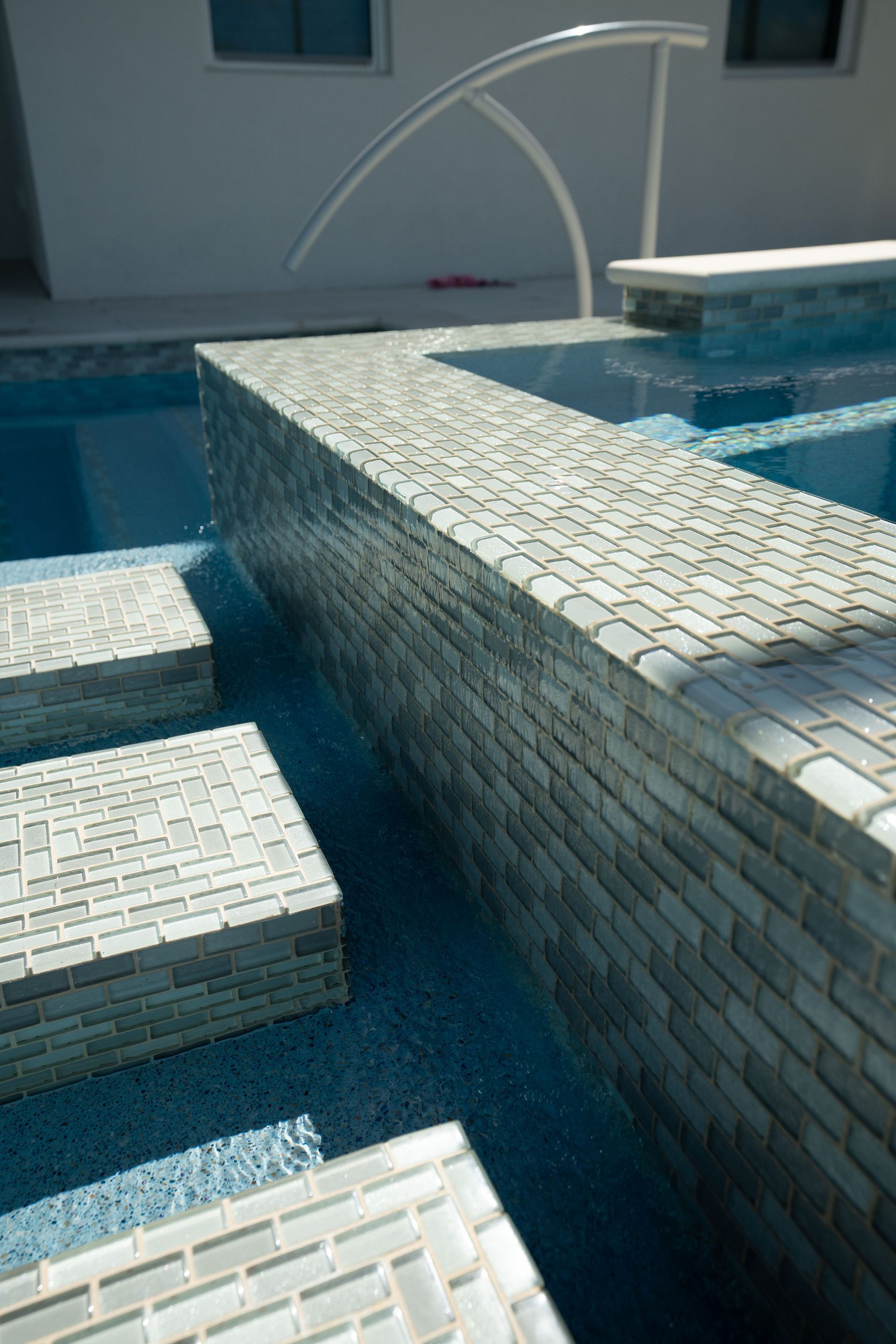
Even with perfect chemistry, your finish needs regular brushing to stay smooth and clean. Over time, fine dust, algae, and mineral residue can settle and harden, dulling the surface.
For plaster and quartz finishes:
Brush the entire pool twice per week using a nylon-bristle brush.
For pebble or aggregate finishes:
Use a stainless-steel brush once a week — the tougher surface can handle it.
Don’t forget to clean the tile line and steps, where buildup is most common. Skipping this step can lead to visible discoloration and a rough texture over time.
4. Control Calcium and Scale Build-Up
Calcium scaling — those white, chalky deposits that appear along your waterline or on surfaces — not only looks bad but can permanently damage your finish if ignored.
Causes:
- High calcium hardness
- High pH
- Warm water temperature
Prevention:
- Keep calcium hardness under 400 ppm.
- Use a sequestrant monthly to bind minerals.
- Occasionally lower your pH slightly (7.2–7.3) to help dissolve existing buildup.
If scaling becomes severe, a professional acid wash may be necessary — but this should only be done by experts, as improper application can harm the finish.
5. Manage Water Levels and Sun Exposure
Florida’s heat and UV radiation can be relentless. When water levels drop due to evaporation, parts of the finish are left exposed, leading to cracks, fading, or rough patches.
Tips:
- Keep your water level high enough to cover all surfaces at all times.
- During hot months, consider using a solar cover to reduce evaporation and chemical loss.
- Shade structures or surrounding landscaping can reduce UV exposure and prolong color retention.
Even simple actions like these help prevent micro-cracks and surface dehydration, which lead to plaster degradation.
6. Professional Inspections and Preventive Maintenance
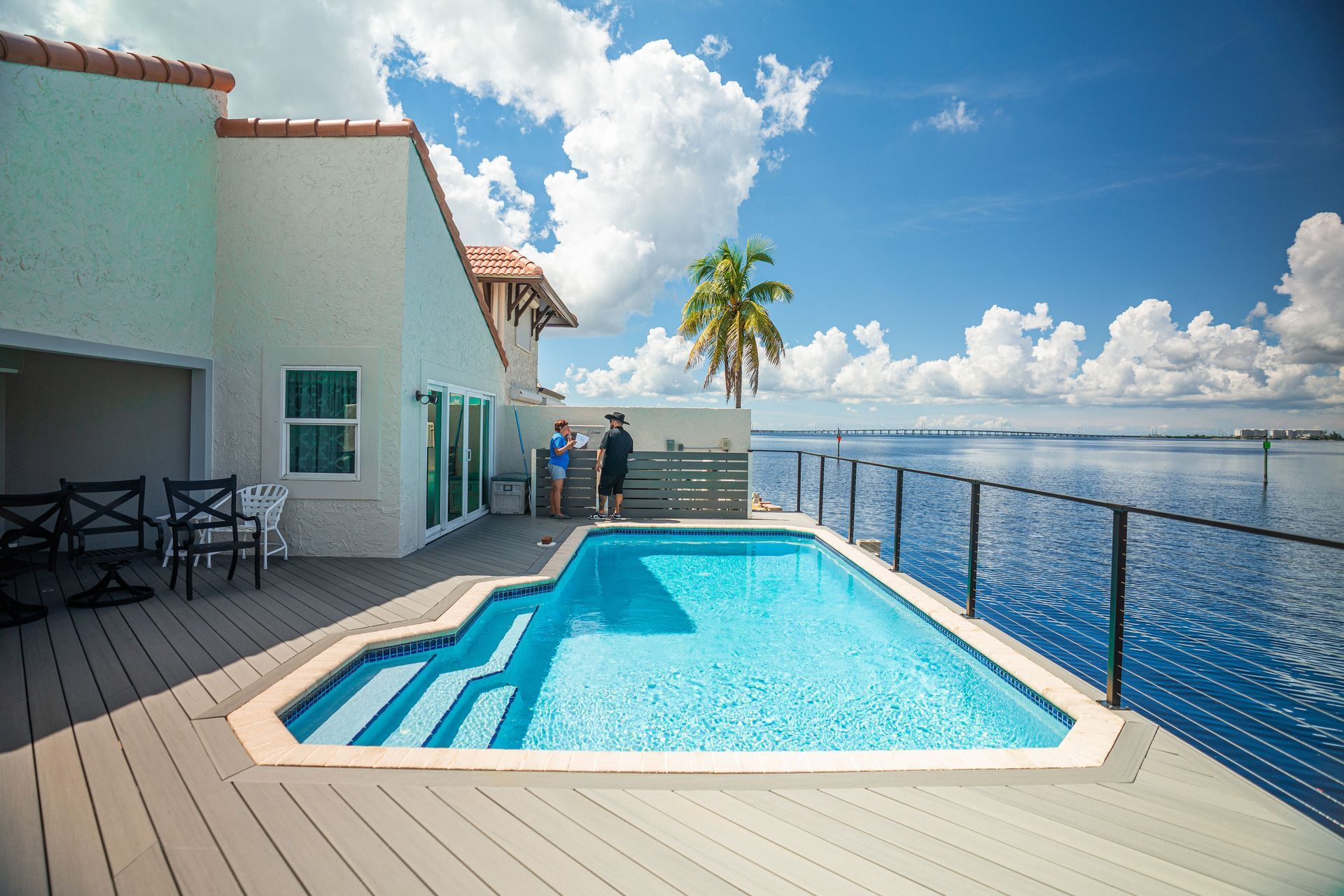
Just like a car needs periodic servicing, your pool benefits from professional checkups.
An annual inspection by a licensed pool contractor can catch small issues before they turn into expensive repairs.
A professional can:
- Check for leaks, delamination, or hollow spots under the finish.
- Inspect your pool equipment (pumps, filters, heaters).
- Assess water balance and surface condition.
These inspections are especially valuable in coastal areas like Englewood, Venice, or Lakewood Ranch, where salt air and mineral-rich water accelerate wear.
Expect to pay around $350–$600 for a full professional inspection and maintenance service — a small price compared to resurfacing costs that can exceed $15,000–$20,000.
7. Know When It’s Time to Resurface
Even with excellent care, every pool finish eventually reaches the end of its life.
Watch for these signs that resurfacing may be due:
- Persistent roughness even after brushing
- Discoloration or mottling that doesn’t fade
- Visible cracks or chipping
- Difficulty maintaining water balance
If you’re unsure, a pool renovation expert can assess your surface and recommend the best approach — whether it’s a patch repair, acid wash, or full resurfacing.
8. Bonus Tip: Avoid Draining Your Pool Without Guidance
Many homeowners make the mistake of draining their pool completely to “deep clean” the surface — but this can cause serious damage, especially in Florida’s sandy soil and high water tables.
An empty pool can actually float or crack from hydrostatic pressure if not properly managed. Always consult a professional before draining to ensure it’s safe for your pool type and location.
Extending the life of your pool finish isn’t complicated — it’s about consistency.
By maintaining proper water chemistry, brushing regularly, managing scale, and scheduling professional inspections, you’ll protect your investment and enjoy a flawless pool surface for years longer.
Whether your pool is plaster, quartz, or pebble, taking these proactive steps keeps it looking as stunning and comfortable as the day it was installed.
If your finish is already showing signs of wear, our team specializes in high-quality resurfacing, tile replacement, and complete pool renovations across Southwest Florida.
We’ll help you restore your pool’s beauty and extend its life — with durable materials built to thrive in Florida’s climate.


